Sync with all communication endpoints!
Run contextual, hyper-personal marketing emails, push notifications, or in-app banner campaigns in real-time.
Book a Demo
Run contextual, hyper-personal marketing emails, push notifications, or in-app banner campaigns in real-time.
Book a Demo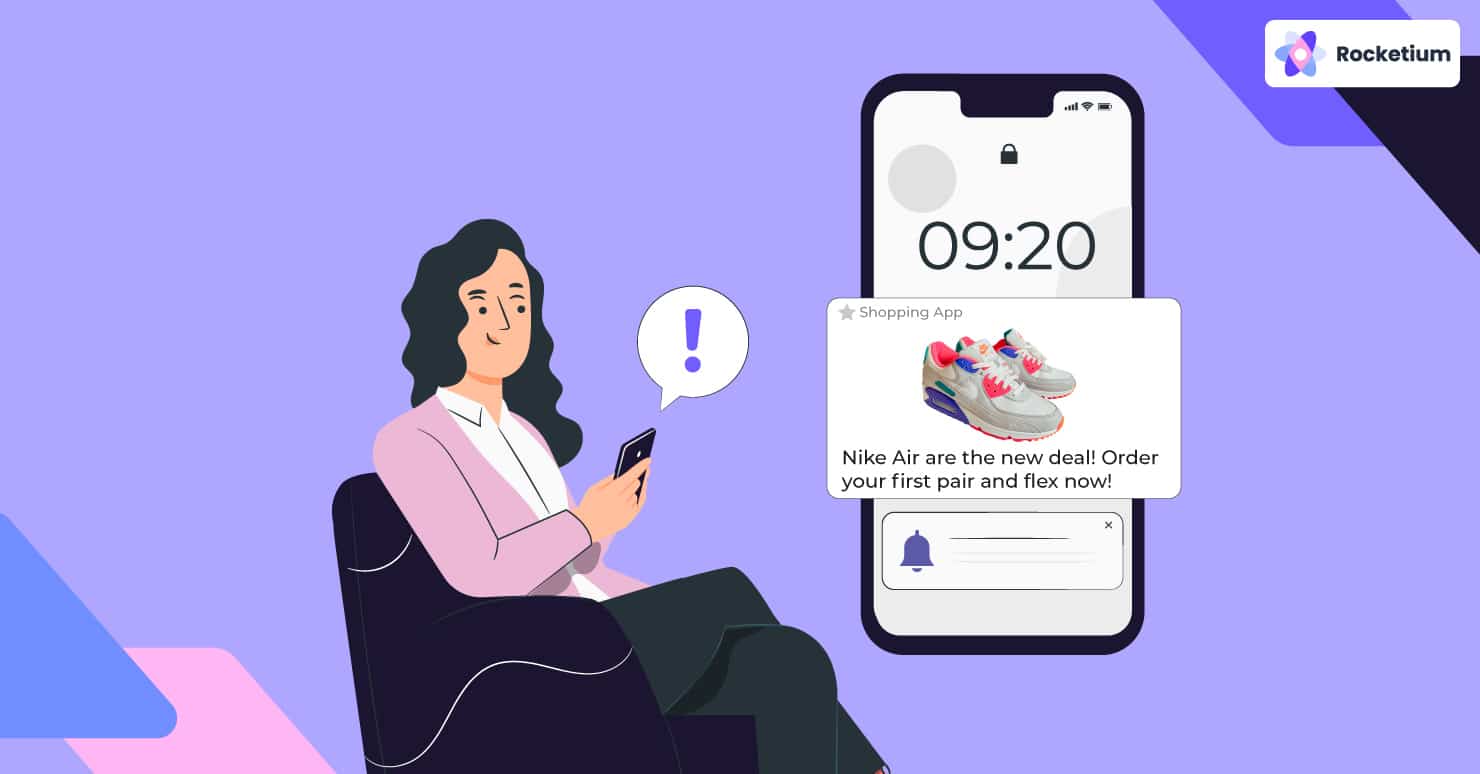
They say out of sight is out of mind. In the fast-paced world of digital advertising, this is an existential challenge for marketers. Let’s consider a typical online shopping scenario. Often consumers browsing products on an eCommerce app will add a few items to the cart and then forget all about it – unless they are reminded of it.
However, a text-based push notification is no better than the hundreds of SMS messages the average customer gets on a daily basis. It is not difficult to imagine how mobile users might respond to such notifications that are often difficult to read. That’s right – they’re likely not going to bother at all! Ultimately, your eCommerce retargeting campaign would fail to deliver the results you may hope for. The solution: rich push notifications!
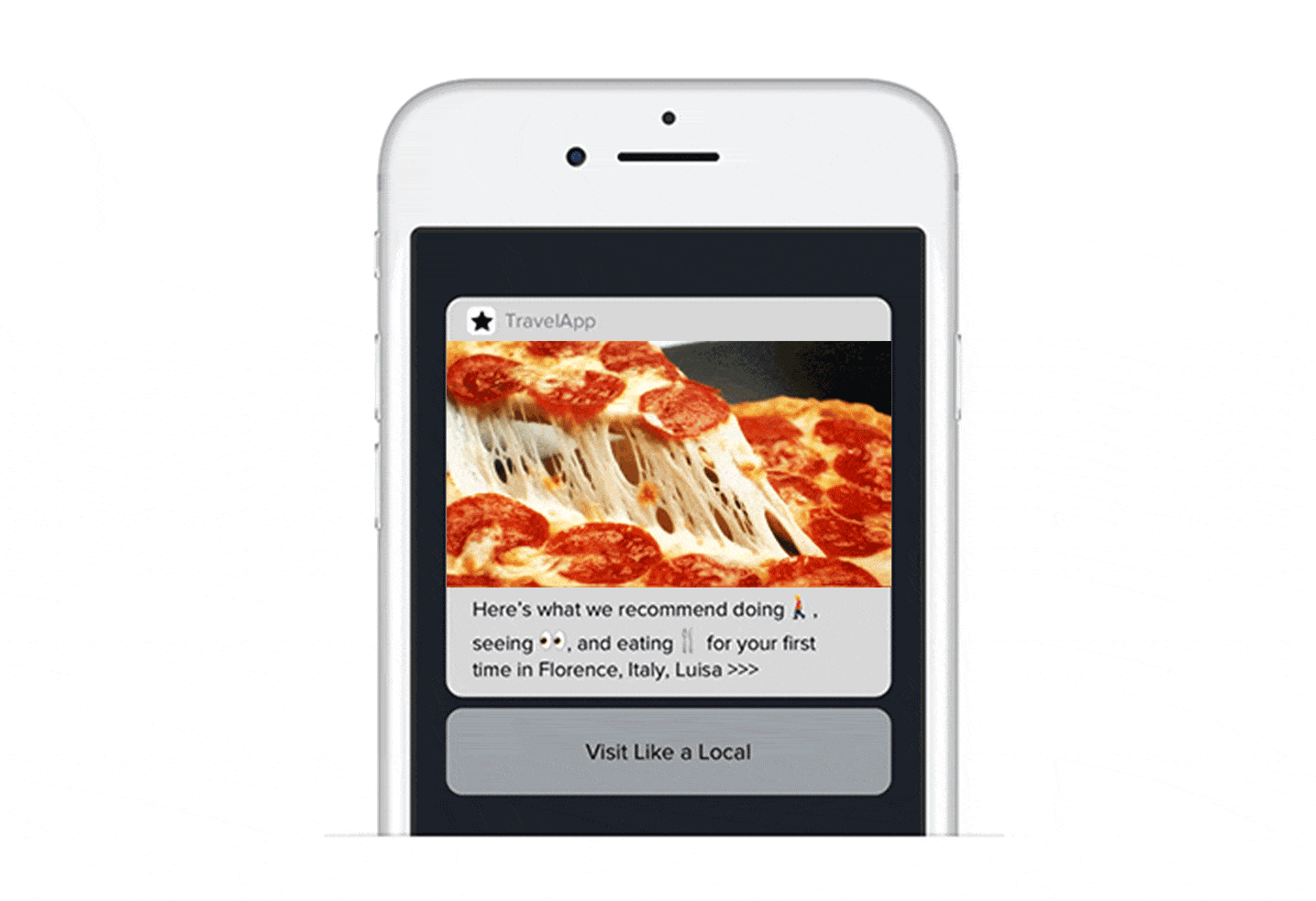
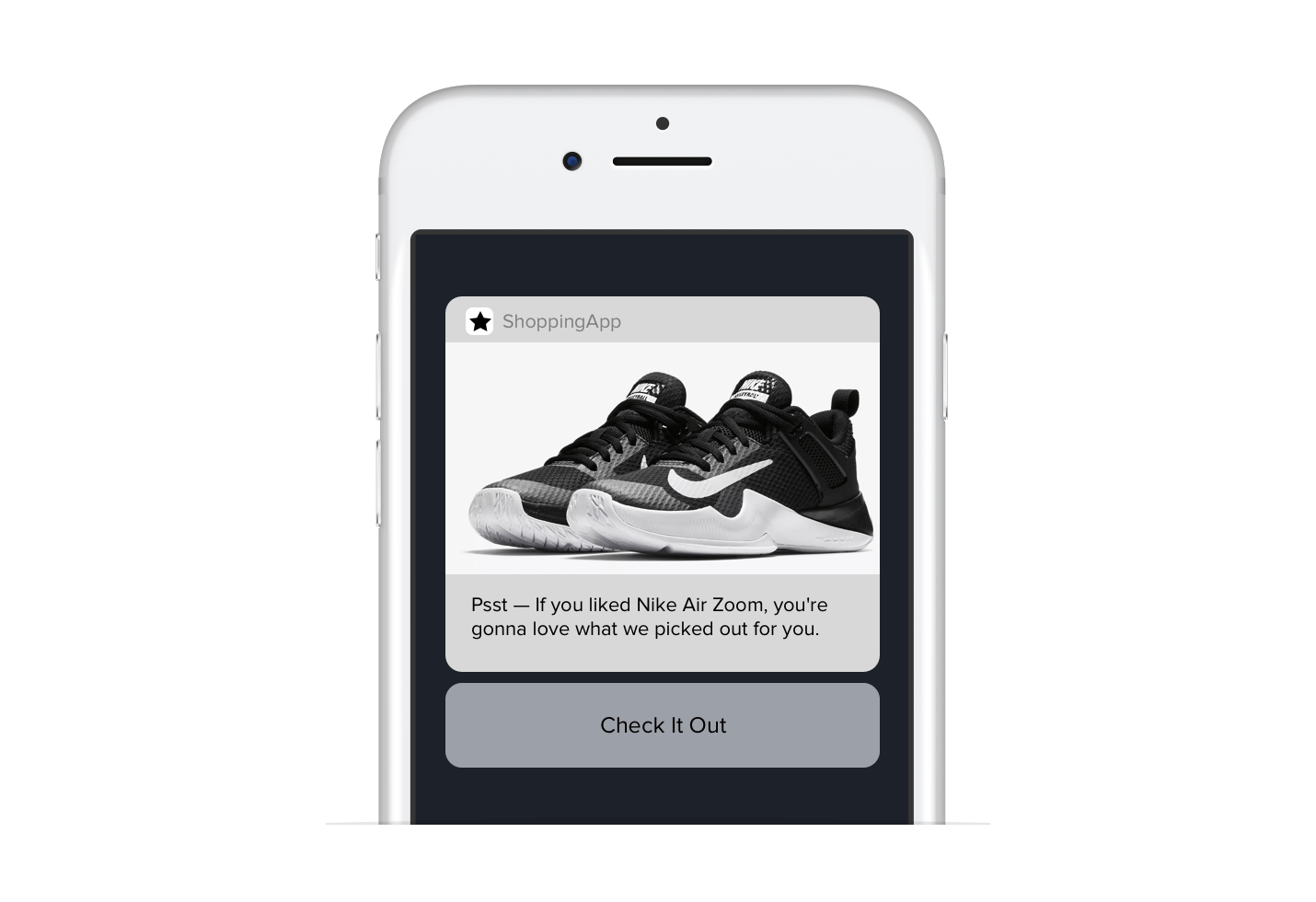
MoEngage, a leading customer engagement platform, discovered that rich media outperformed regular text-based push notification campaigns by 3% to 6% on average in terms of click rate. Their impact could potentially be 30% greater if combined with hyper-personalization and smart scheduling.
Rich media like GIFs, videos, and images work exceptionally well when it comes to attracting attention and getting the customer to ‘buy now’. That’s not all, rich push notifications allow you to instantly send offers and sale previews to customers who may not have used the app in a while. Rich push notifications could thus be the answer to driving engagement and repeat sales while reducing the overall cost of customer acquisition.
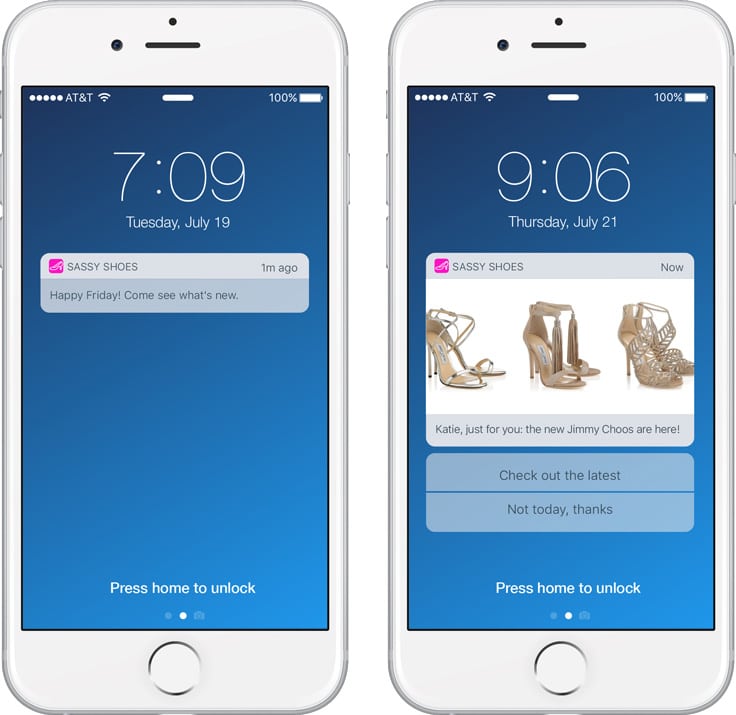
Users expect to receive the right message on the right platform – personalized to suit their needs, frequency of product/service use, location, and season, among other such factors. On engagement campaigns such as emails or push notifications, this is all the more crucial since irrelevance can churn them away for good.
To create compelling personalized notifications, you need more than just a great offer – the creative, and CTA must match too! For example, each creative variation must include products that each cohort is most likely interested in. The design should be attractive yet clean and adhere to brand guidelines.
And, let’s not forget that different platforms require different strategies. For example, an app push notification campaign is ideal for announcing the return of a limited item.
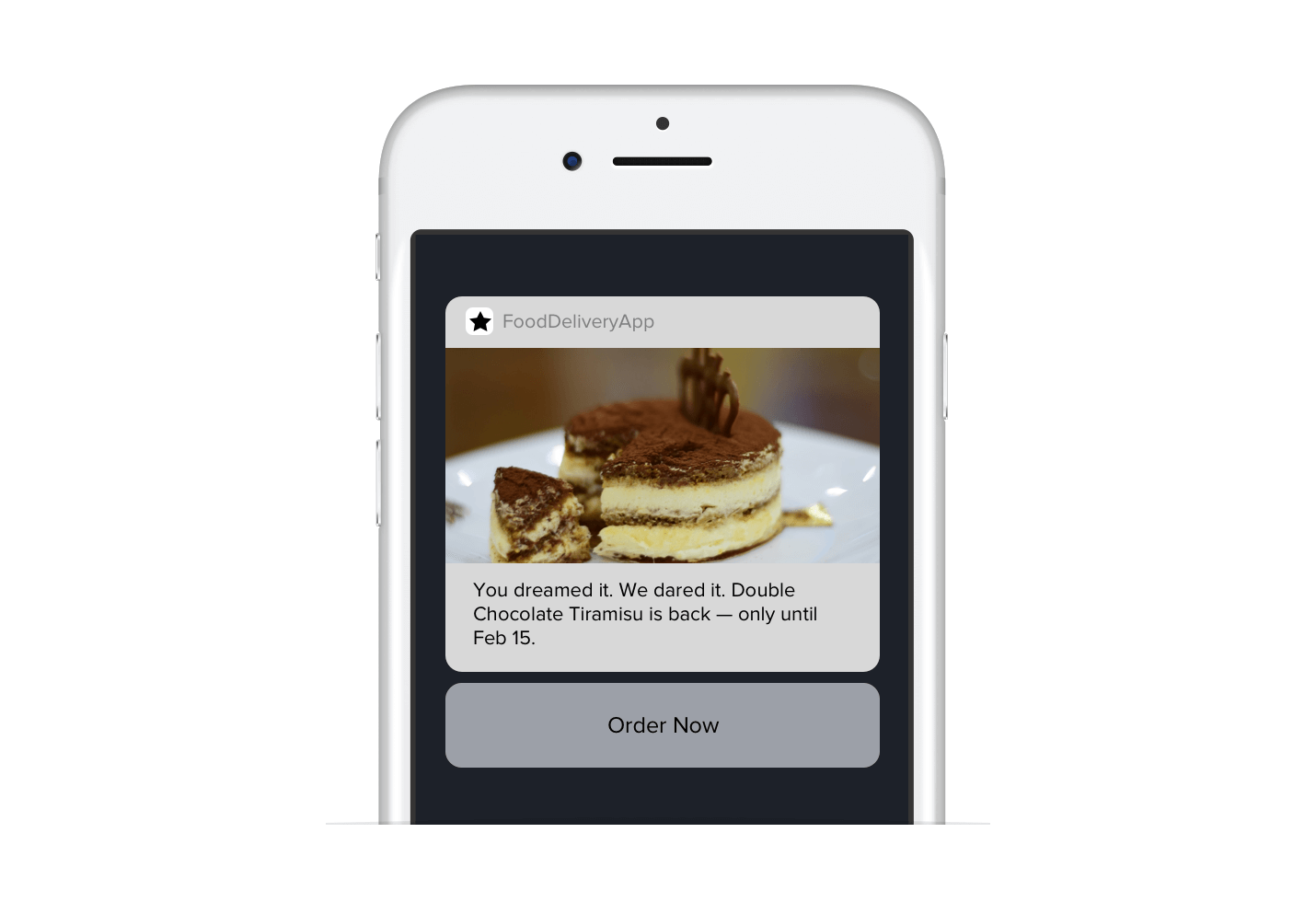
Whereas, displaying personalized offers for multiple products is better suited for emails.
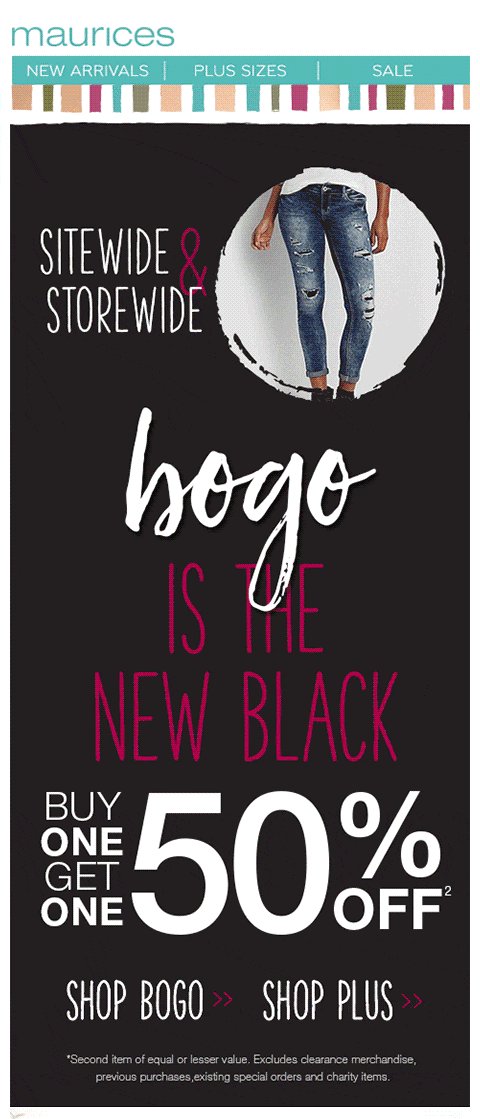
So, how does one deliver personalized rich push notifications in a way that maximizes engagement and conversion?
Most teams simply don’t have the resources to scale creative production to create personalized push notifications fast enough while staying on-brand.
Depending on the platform or channel, design teams have to reformat and resize creatives to suit that channel.
Any changes to the campaign creatives owing to errors, offer updates, or positive results from creative testing, means design teams have to make edits across 100s of creatives.
All of this chokes the design team and campaign timelines get delayed. As a result, brands miss out on targetting customers at the right time with the right message.
Moreover, it leaves no room for design teams to experiment and be creative to come up with innovative designs that will help their brand stand out.
However, a solution is in sight: creative automation is fast leveling the playing field, enabling brands to scale their customer engagement campaigns more effectively than ever before.
Creative Automation allows brands to automate the creative production process while staying on-brand. It also allows you to rapidly respond to changing user behavior and maintain performance.
Here are the advantages of leveraging creative automation for your upcoming push notification campaigns:
Depending on your workflow, the average cycle time for adapting, testing, and publishing a creative campaign can take 3 weeks or more. For high-frequency push notification campaigns, this is utterly inefficient, both in terms of production cost and campaign ROI.
Creative automation enables teams to prioritize and step up content production, squeezing the best possible performance out of each creative. This allows them to focus on targeting and context rather than waste time manually creating variations from scratch.
All in all, creative automation can streamline production workflows and contribute significantly to bottom-line growth.
Brands are rightly focussing on audience segmentation to increase engagement. However, they often cannot refresh their creatives fast enough to optimize campaign performance. Push campaigns are highly time-sensitive so the creatives need to be mapped quickly to individual cohorts for the best results.
Creative automation allows users to tag and reuse multiple rich media elements rapidly to create custom variations for email and push campaigns within seconds. The tags allow the associated image or interactive elements to be updated instantly to suit changing campaign requirements.
The result: personalized notifications differentiated at a granular level, unlocking better engagement.
Publishing a push notification campaign across segments manually inevitably requires a fair amount of manually downloading and uploading, each time a new variation has to be used. This not only increases the campaign turnaround time but also requires you to take designer support for the slightest change.
If there are multiple creative sets or attributes to be edited, the entire campaign set-up may have to be changed. Creative automation makes it possible for you to edit and export rich media creatives to your marketing automation tool to refresh live campaigns in real-time.
In other words, you can rapidly close the gap in engagement across a campaign with the marketing automation integration.
The best brands leverage creative management platforms to create and publish rich push notification campaigns at scale. However, the key is to integrate it with your marketing automation tool to ensure optimum efficiency and compliance.
Rocketium, for example, integrates with marketing automation platforms like CleverTap, MoEngage, WebEngage, etc., via APIs to effectively deliver personalized rich push notifications at scale.
Here is a 5-step process to run personalized rich push notification campaigns at scale with Rocketium’s marketing automation integrations. (In this example, we’ve assumed a hypothetical brand uses CleverTap as its marketing automation solution):
Create a key visual template within Rocketium or import a base design from an external tool like Adobe. Key visual templates are the building blocks of creative automation, from which you will create personalized variations.
You can create a new workspace for the project and add team members as required. This will allow you to edit, review, and collaborate seamlessly with other contributors throughout the campaign.
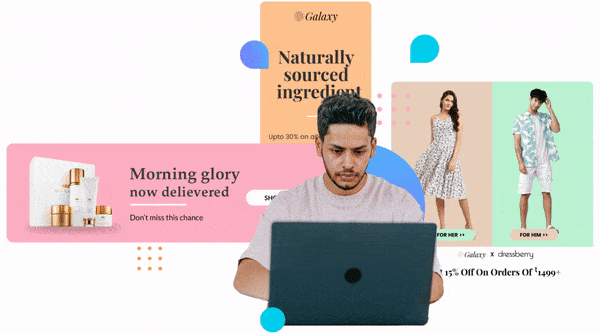
In the screenshot below, you’ll notice that the chosen project is a clothing sale for Bangalore, which is the key visual template.
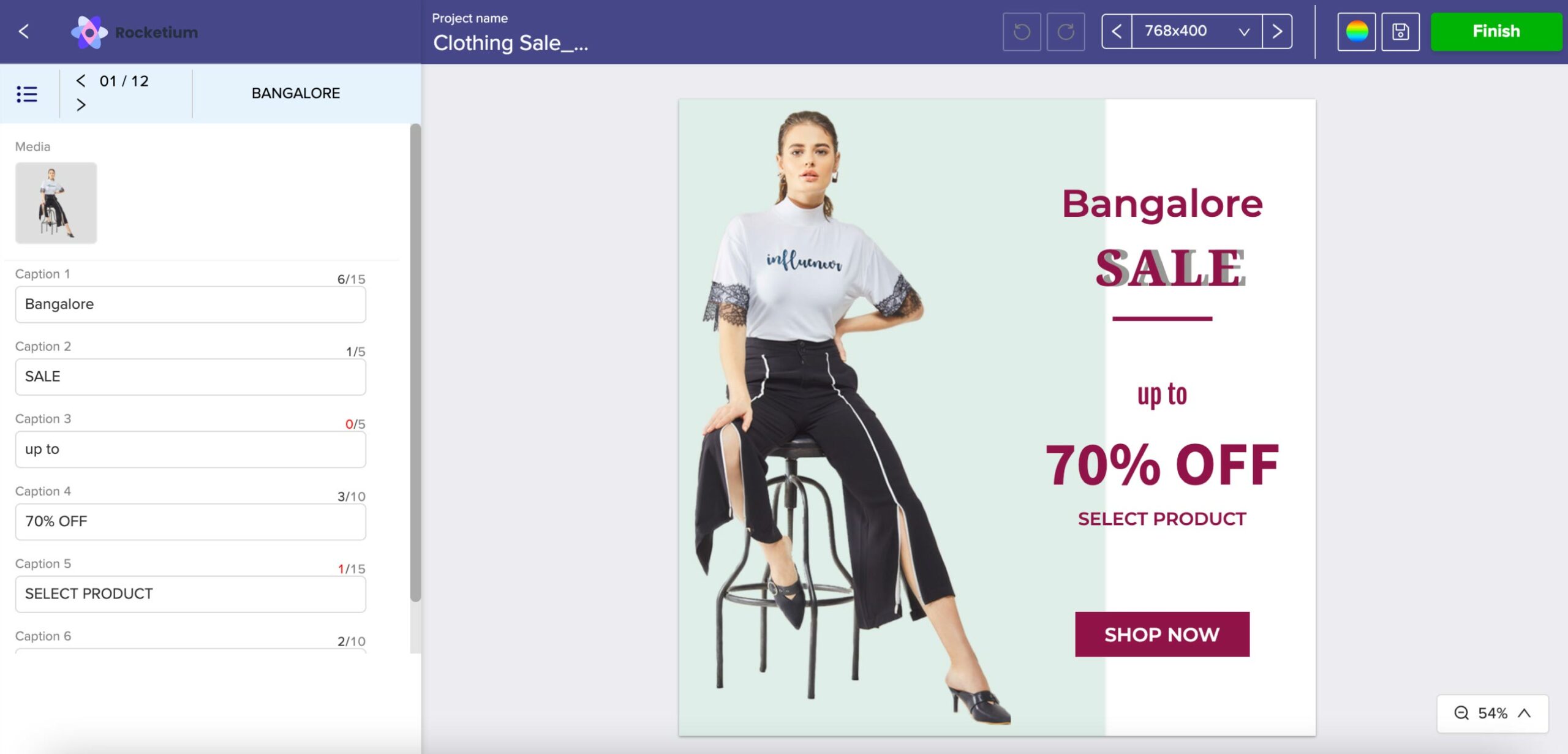
Let’s assume that this project is part of a larger multi-lingual push notification campaign targeting users across India. Accordingly, the description, CTA, and product images will have to be aligned with factors such as language, gender, demographics, and location. For example, if the user is based in Bangalore, the push notification should clearly call out the location within the offer.

Secondly, the product image and copy used would also need to be gender-specific. In turn, this might require changes to the offer itself. In other words, each variation of the base template should cater to individual cohorts based on the campaign strategy.

To create personalized variations, you will use the spreadsheet import functionality. All you need to do is add the appropriate tags to the spreadsheet containing the project data such as product descriptions, images, etc.
Since we are creating location and gender-specific variations, add ‘location’ and ‘gender’ tags to the data file. Once you have populated the relevant details in the spreadsheet; upload it to Rocketium, and voila! Your personalized creatives are automatically generated.
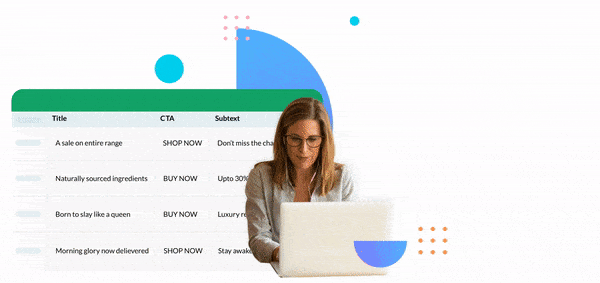
Now that you have produced all the personalized creatives you would require for the campaign, let’s get a sense of Smart Links.
What are Smart Links?
Smart Links are essentially what enables Rocketium to integrate with marketing automation platforms. They are dynamic links that can be made unique using query parameters. For a given combination of user parameters, Rocketium finds the best matching creative and sends it to the marketing automation platform (in this case, CleverTap campaigns).
How to generate a Smart Link?
To share a project from Rocketium, there are multiple options, and one of them is the Smart Links option.
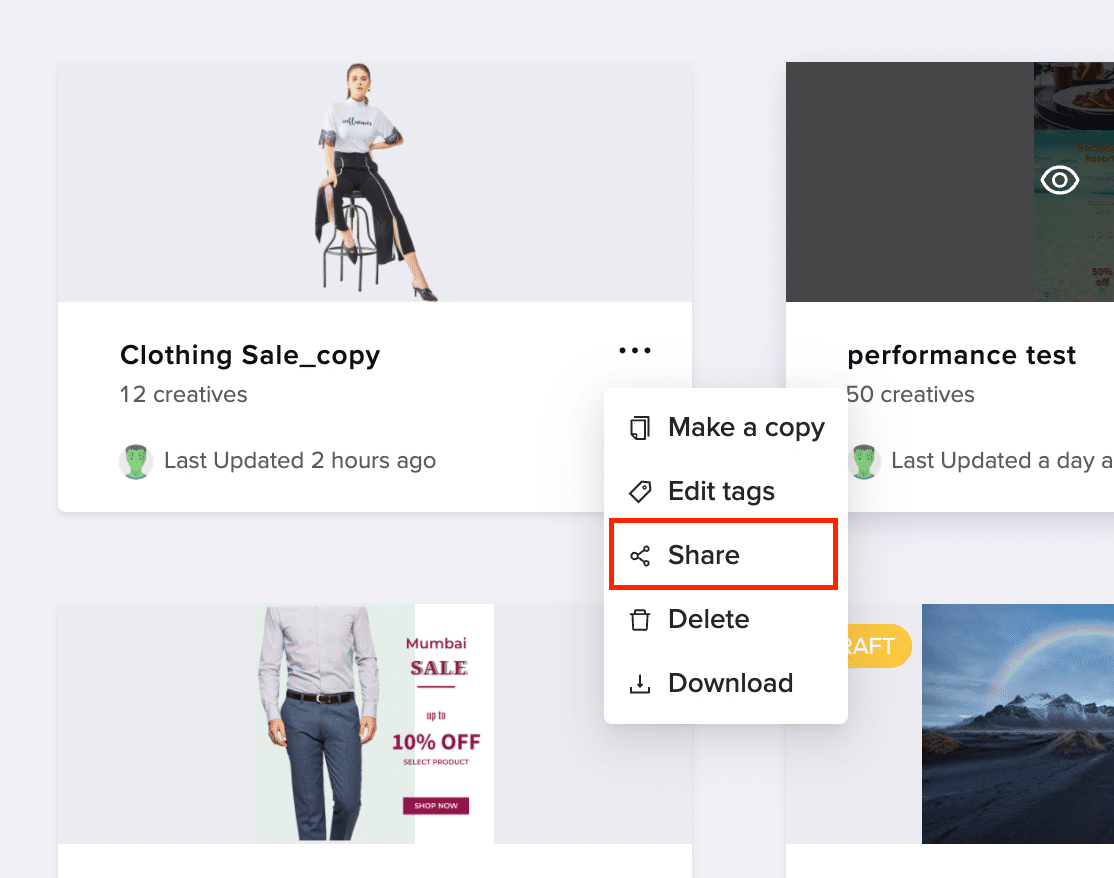
When you click on share and go to the Smart Links option at the end, you’ll see a modal like this:
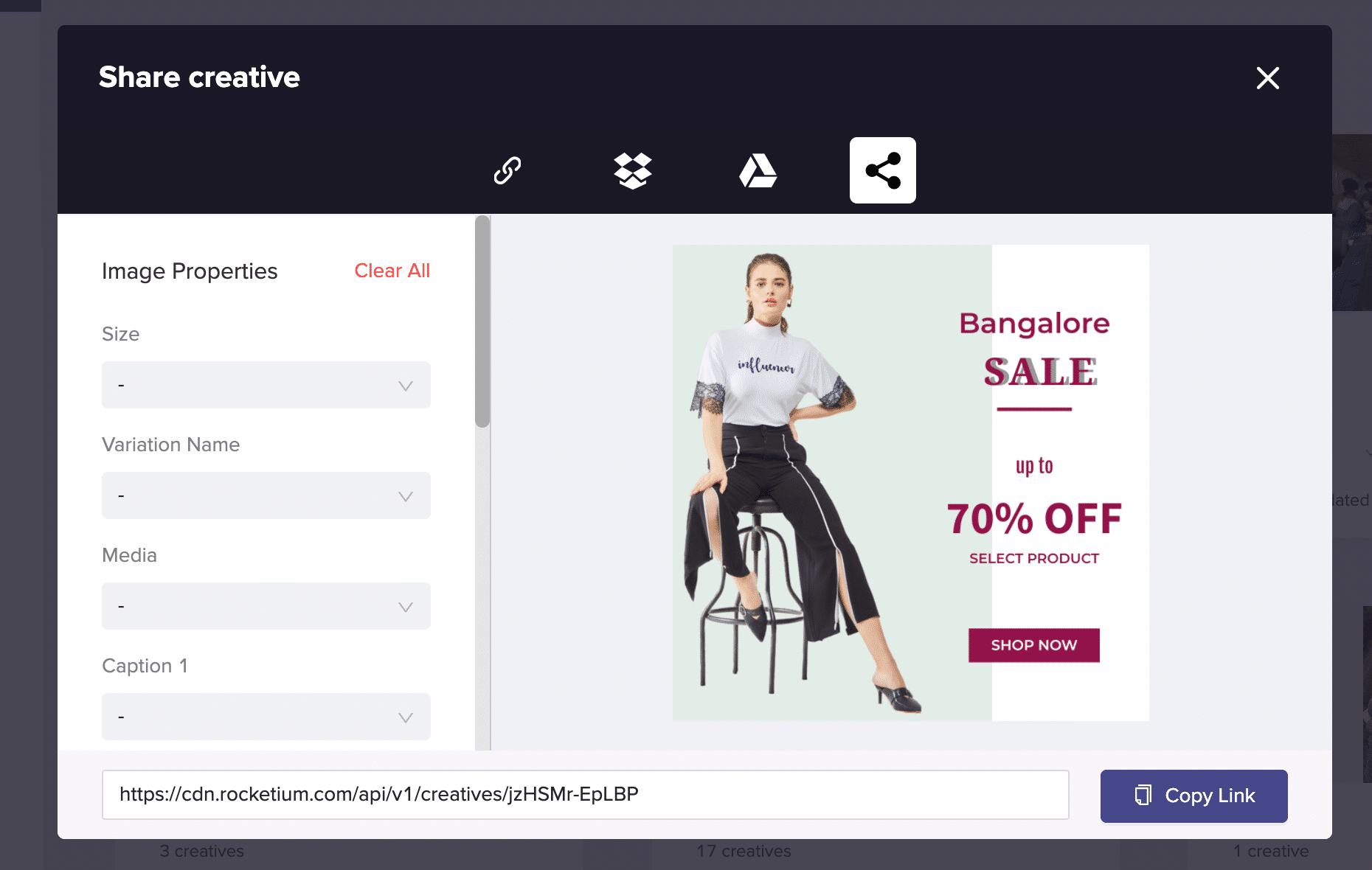
The left panel lists a bunch of metadata fields you have uploaded via spreadsheet. Selecting values of metadata from the left panel will render appropriate creatives as per Smart Links’ API logic.
To test it out, we’ve selected the location as Delhi and gender as Male, and it should render a creative as follows:
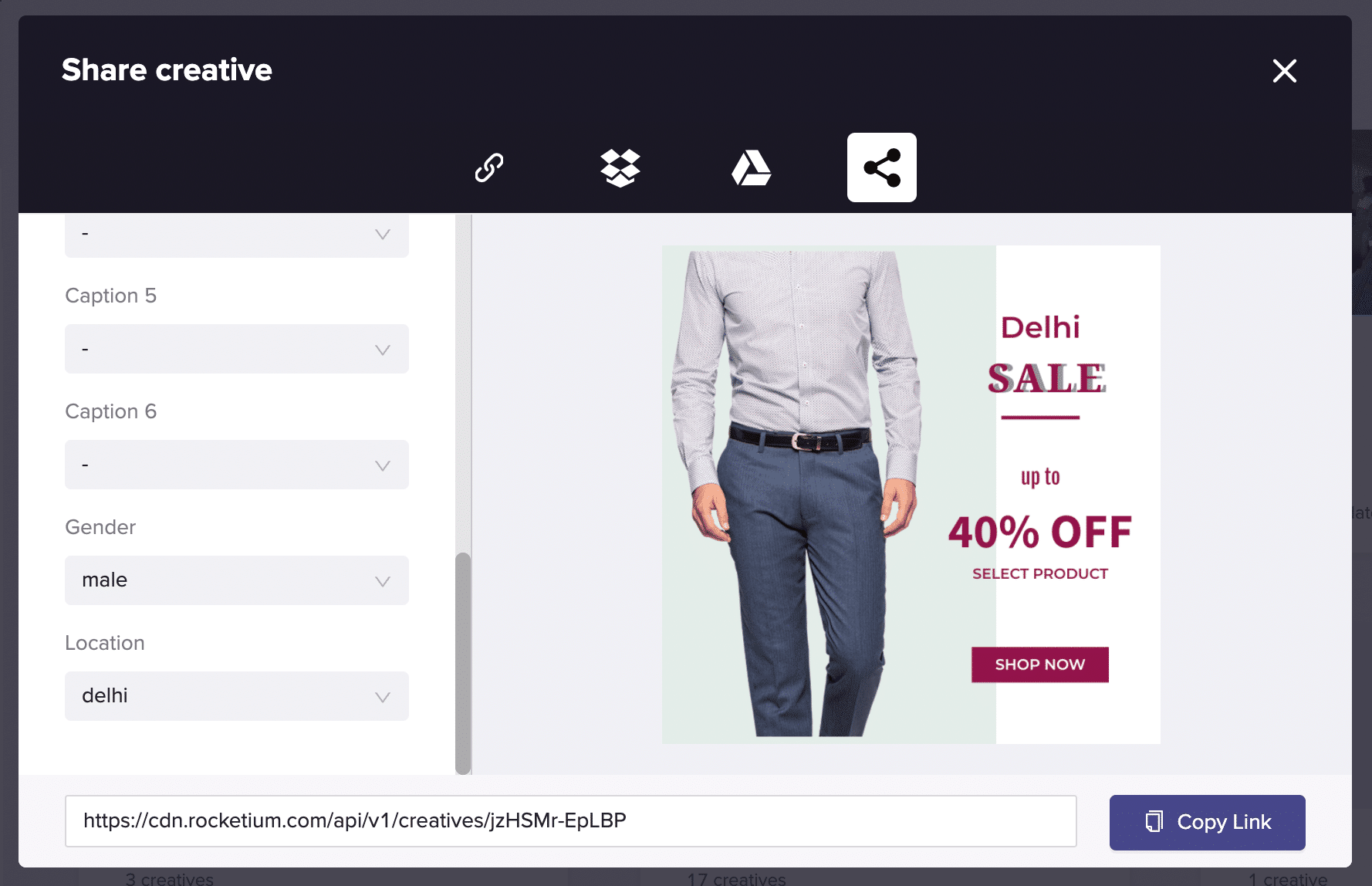
Copy the link at the bottom. This will be used in the next step to integrate with CleverTap.
CleverTap has a feature known as LinkedContent, which allows you to connect with and plug data from Rocketium to create personalized email and push notification campaigns within seconds. All you need to do is specify a source for the data. In this case, the source would be the Smart Link you just generated in Rocketium.
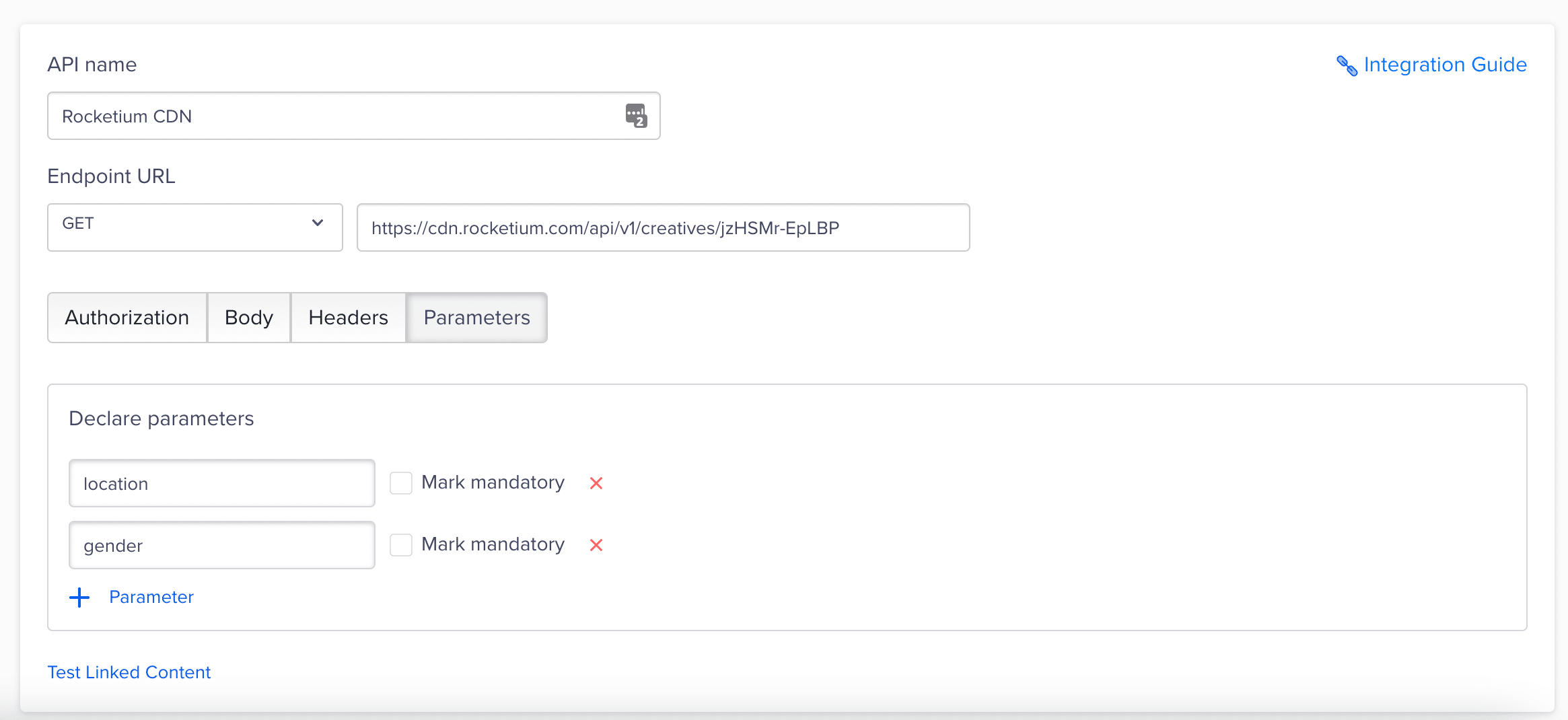
Next, specify the attributes to be used for personalization. This is nothing but the tags you added to the spreadsheet, namely ‘location’ and ‘gender.’ After the source data has been entered, save the data, and the process of integration is complete.
You are now ready to start running personalized push and email campaigns within CleverTap. For the scope of this article, let’s assume you wanted to run a personalized rich media email campaign. The process remains the same for any type of channel – such as rich push notifications.
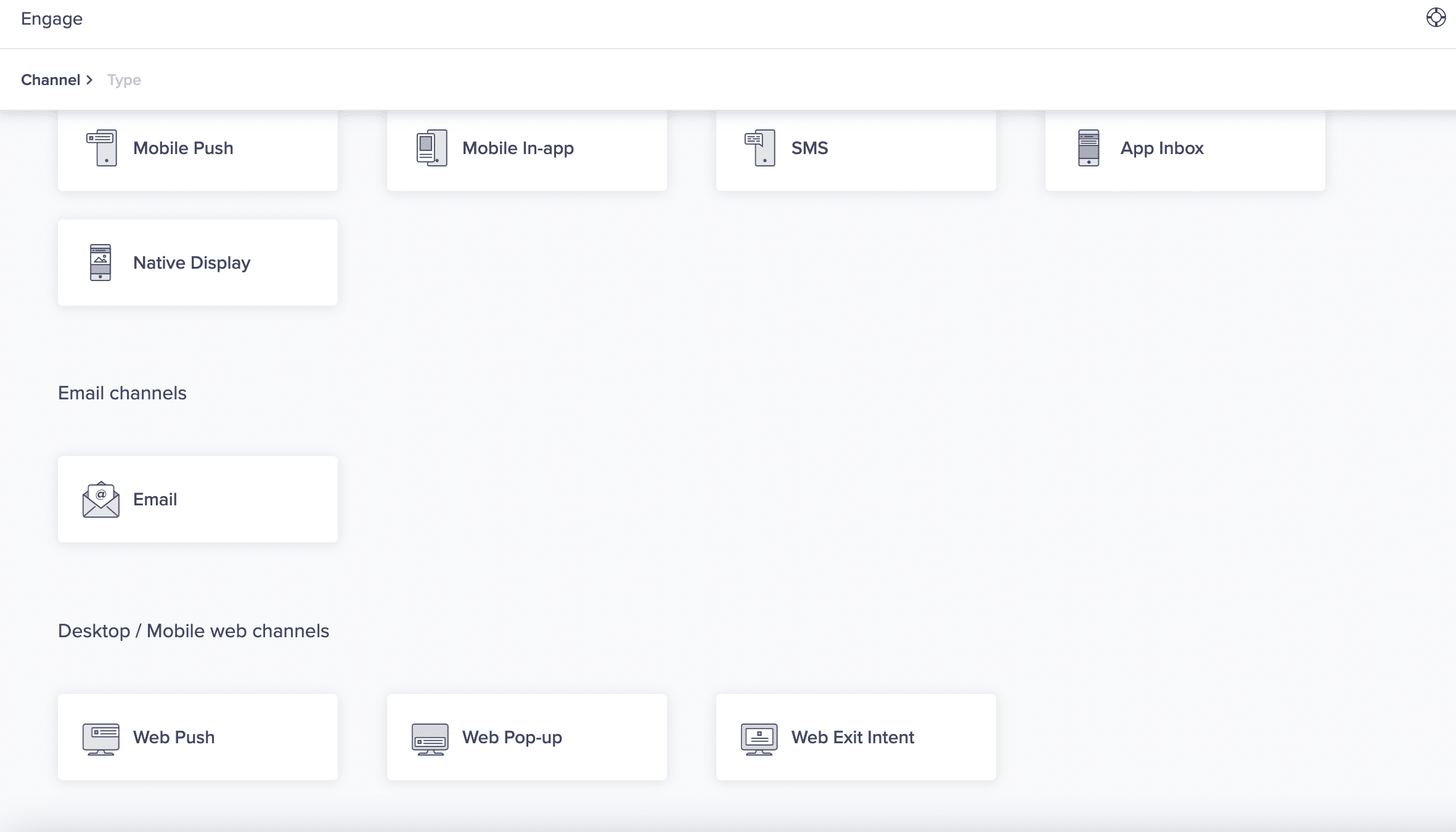
CleverTap’s easy-to-use interface allows you to quickly set up a new message.
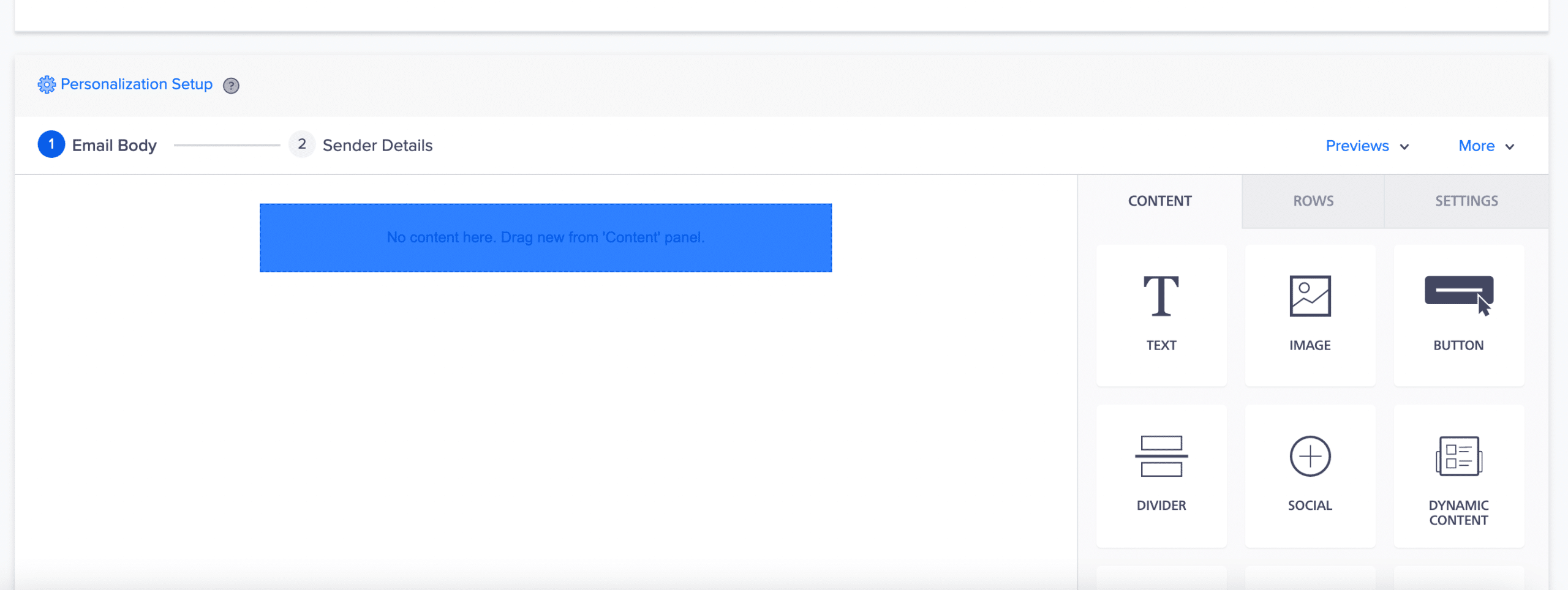
To personalize your campaign, click on Personalization setup and select the configured Linked Content API that you set up in step 4, and click on save.
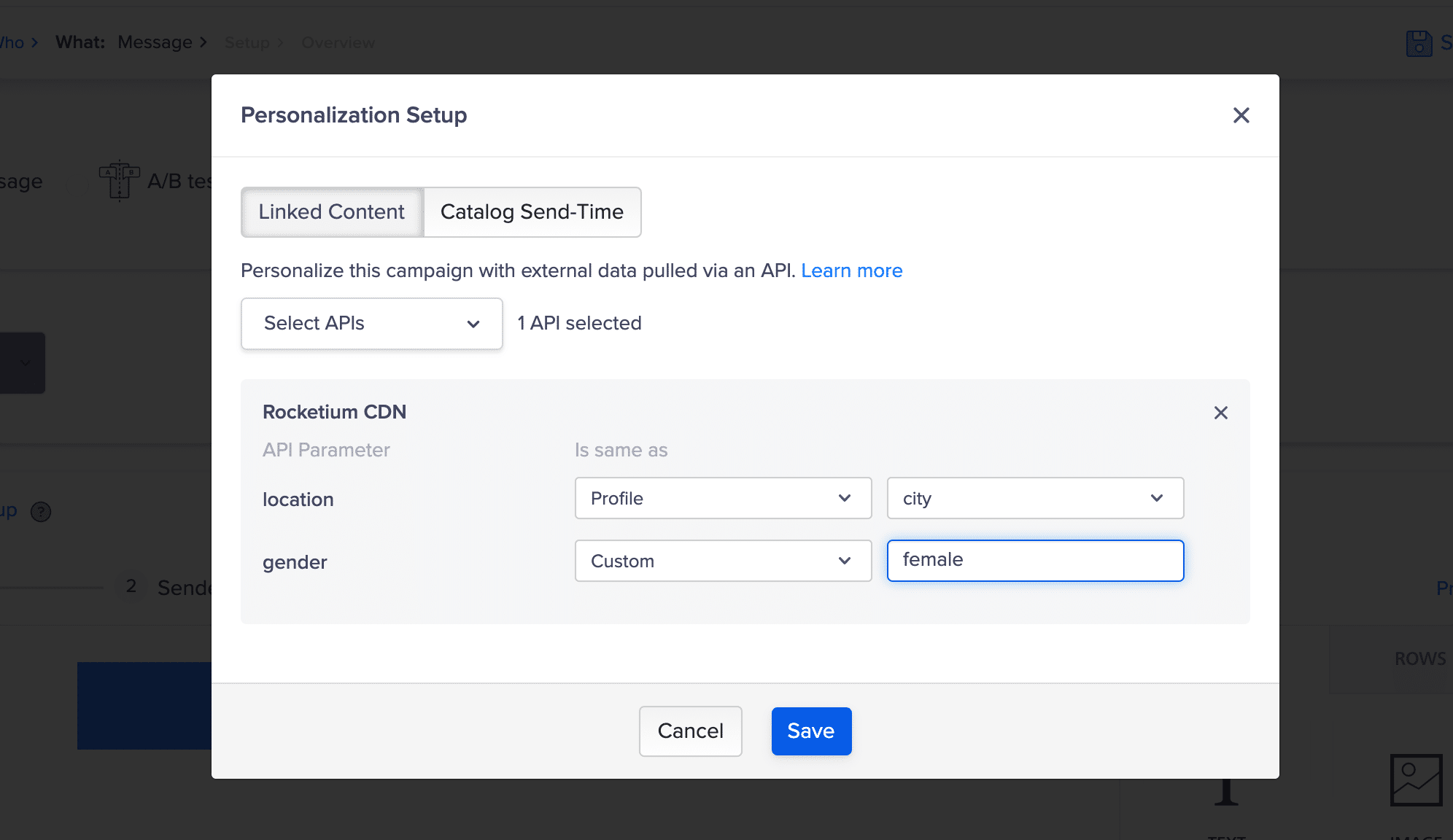
Next, add dynamic content from the right side section of the email body.
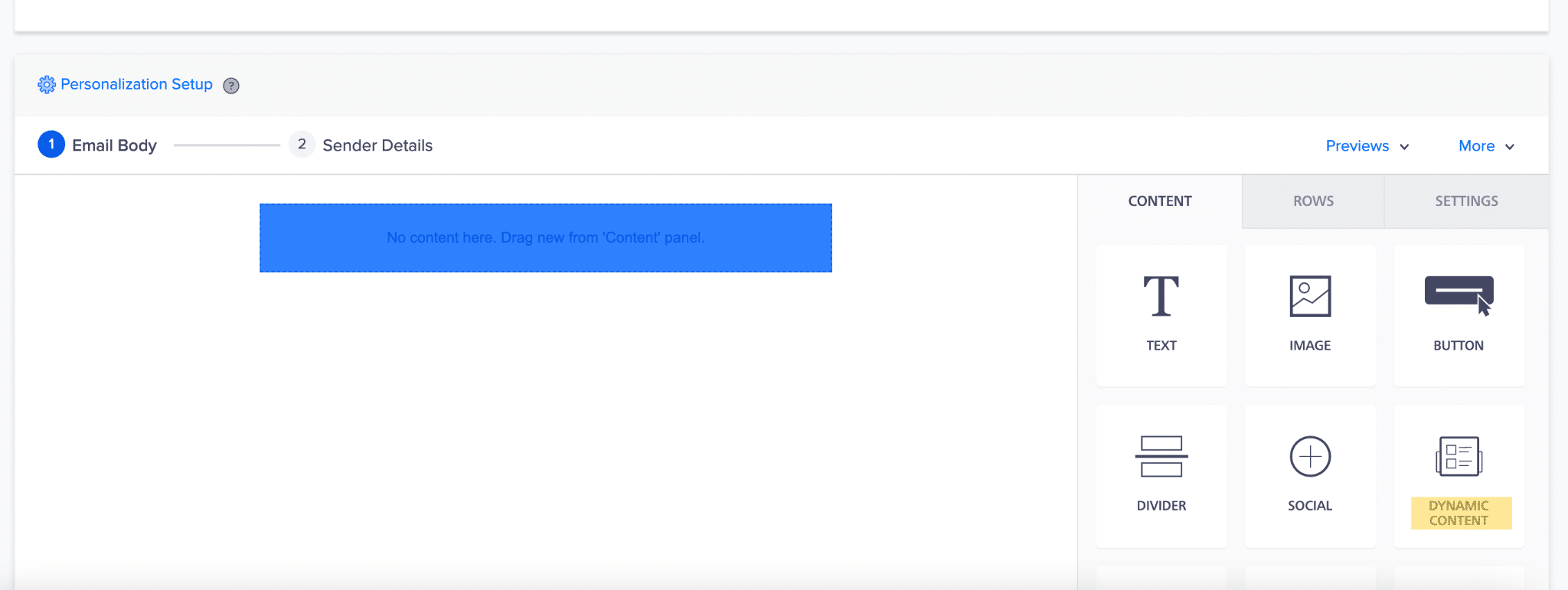
Inside the image URL field, write Liquid Tags to reference configured linked content’s response URL parameters.
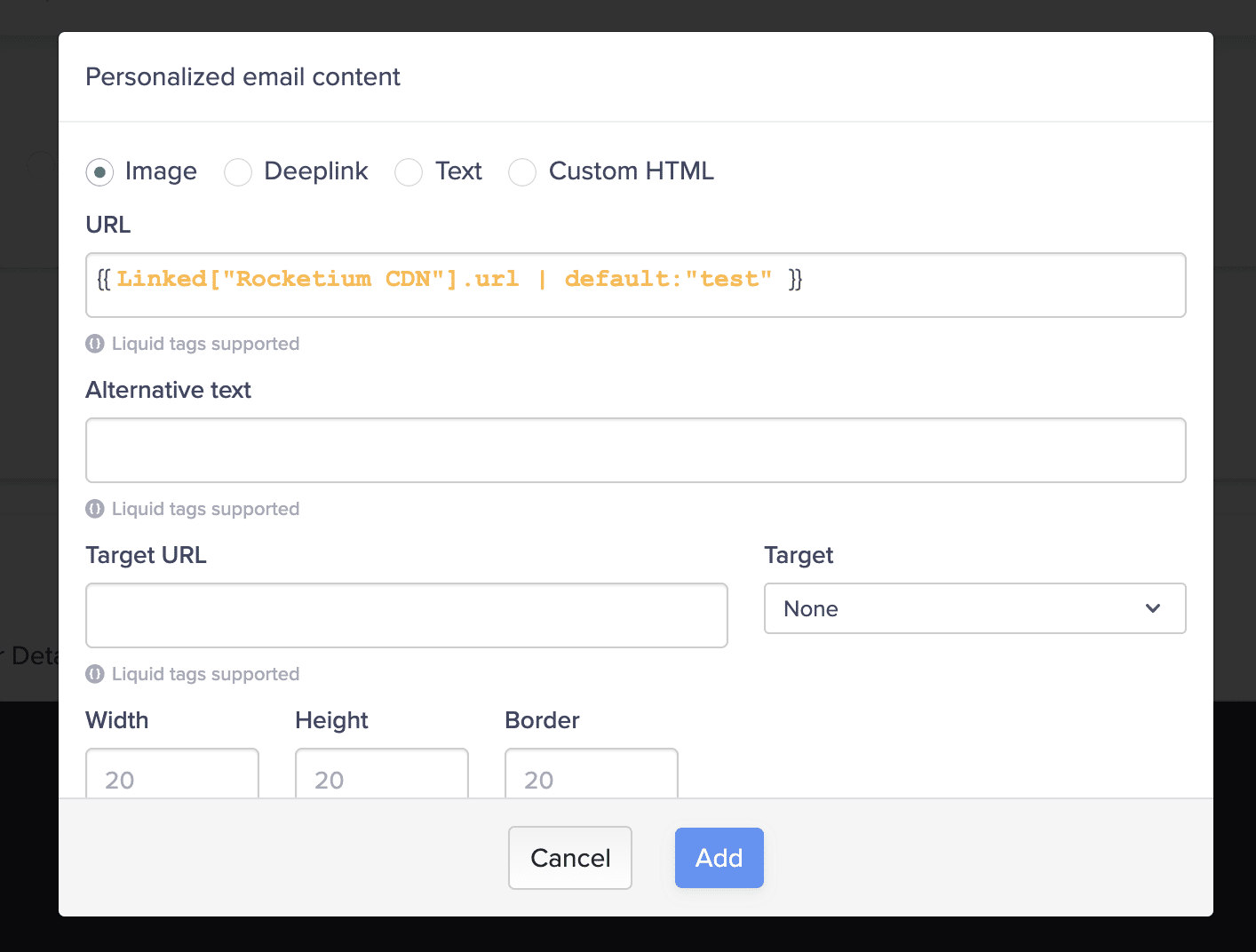
This basically builds a dynamic URL at run time based on user attributes and calls that URL. So when an email is delivered, it will contain personalized creative, based on the URL’s response.
MoEngage has a similar workflow that enables you to run integrated engagement campaigns. The platform uses what it calls Content APIs to integrate source data and runs campaigns based on customizable segmentation and scheduling parameters.
The tool comes with ready-to-use email templates that you can use to create the email body, and the system dynamically adds pre-selected personalization elements at run-time.
The goalposts are shifting for marketers once again. It is no longer enough to refresh your creatives “once every 14 days”. Brands need to be more intentional about how they plan and execute personalized push notification campaigns to solve their engagement and conversion woes.
Focus on the fundamentals first – clearly articulate the campaign goals and the value proposition. This will enable you to relate to the target audience and map your campaigns to specific user needs.
Creative automation can take care of the rest. Using dynamic push notification campaigns and emails, you can take customer engagement to the next level by finally overcoming the production and deployment constraints that hinder your growth.
Rocketium is a leading creative management platform that enables brands to achieve responsive engagement across channels in real-time. It provides revolutionary capabilities in terms of scale and frequency by streamlining creative production workflows, facilitating transparency and team collaboration, and supporting compliance and asset management.
Rocketium is designed to seamlessly integrate with a wide range of platforms and accelerate the overall team performance in measurable ways. It is no surprise that some of the leading global brands like Meesho, OKCredit, Swiggy, and Urban Company rely on Rocketium to engage their users and drive growth.